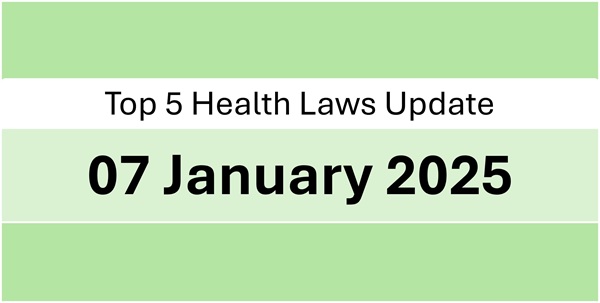Dear Readers, we are happy to share the most interesting legal and policy updates concerning health industry that we read today. we hope you enjoy reading it.
1. India’s Central Drug Standard Control Organization (CDSCO) has issued an updated draft list for the risk-based classification of medical devices. The new entries in the list include categories such as interventional radiology, radiotherapy, oncology, and Class A (non-sterile and non-measuring) devices. Stakeholders are required to submit their feedback within 30 days of the draft’s publication.
Source: bit.ly/422UCmg
2. India’s Ministry of Health and Family Welfare has issued a draft notification proposing an extension for small and medium manufacturers with an annual turnover of ₹250 crores or less to comply with the revised Schedule M of the Drugs Rules, 1945. Manufacturers eligible for this extension must submit an upgradation plan in Form A to the central licensing authority within three months. The proposed deadline for compliance is December 31, 2025. The Ministry has also invited objections and suggestions from stakeholders, which must be submitted within seven days of the notification’s publication.
Source: bit.ly/40mUugc
3. The U.S. Food and Drug Administration (FDA) has released draft guidance on using artificial intelligence (AI) to support regulatory decisions regarding the safety, effectiveness, or quality of drugs and biological products. This guidance proposes a framework to enhance the credibility of AI models in product submissions. The FDA invites public comments on the draft within 90 days.
Source: bit.ly/4fKHeXf
4. India’s new draft Digital Personal Data Protection Rules 2025 require companies transferring personal data of Indian users across international borders to comply with data localization norms. These provisions, which impose additional government restrictions on specific data transfers, are reportedly expected to complicate business operations.
Source: bit.ly/41ZXocd
5. The U.S. District Court recently dismissed negligence and strict liability claims against a non-profit that received an NIH grant and sub-granted part of it to a Wuhan lab allegedly linked to COVID-19. The court found no liability for contributing funding for research activities or basis for strict liability, emphasizing the weak causal connection and the risks of imposing unlimited liability on research funders.”
Source: bit.ly/4gJaS0v

